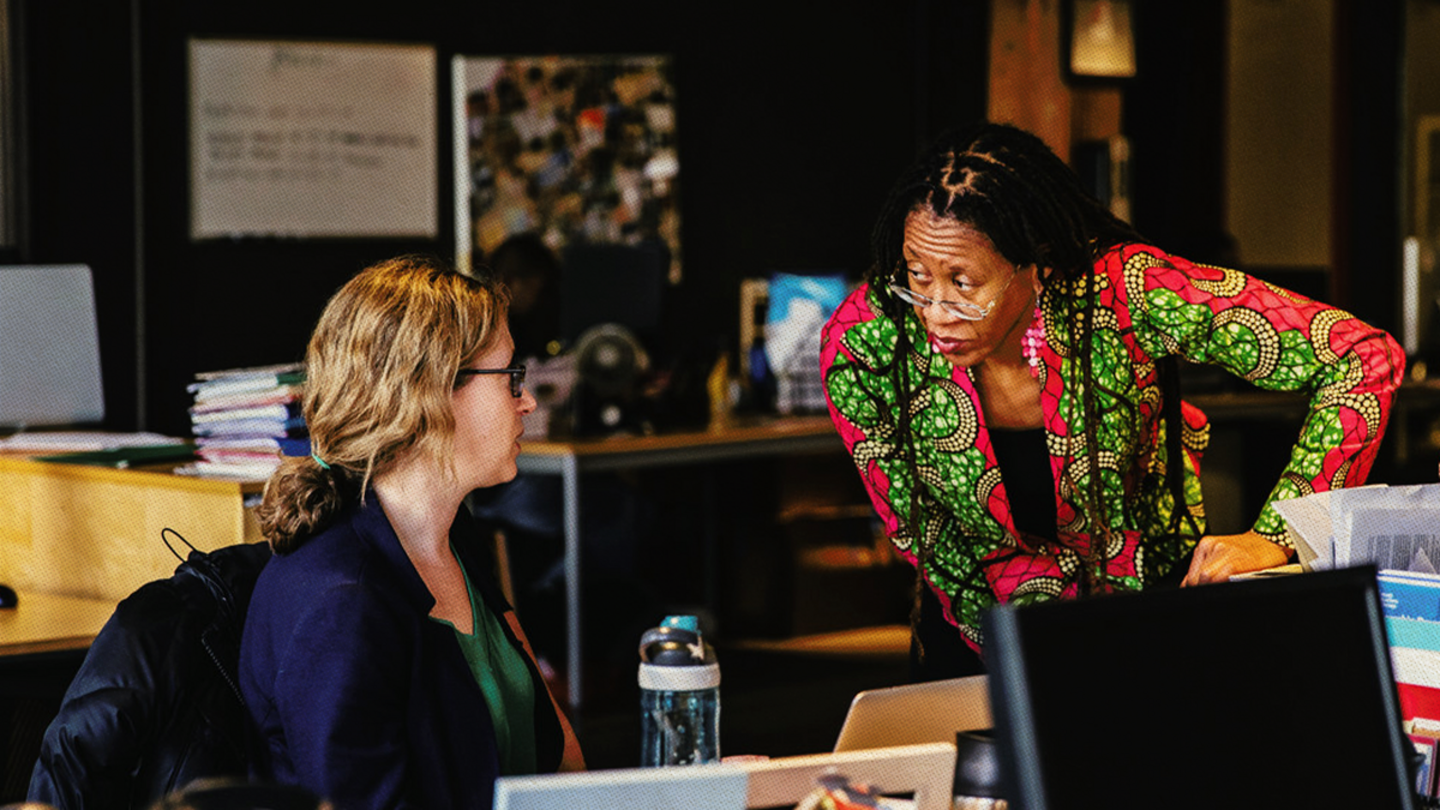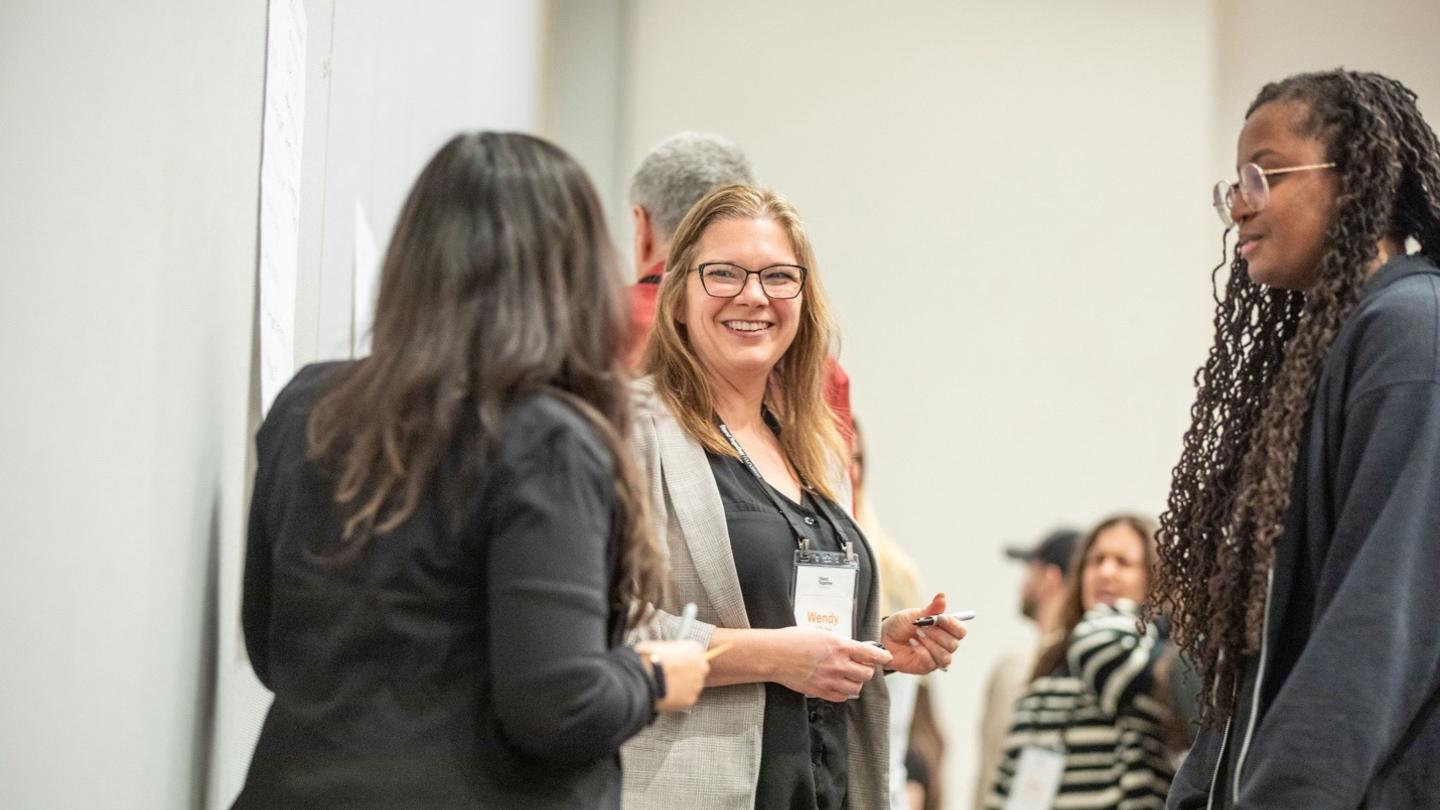The future of work is evolving rapidly, shaped by technological advancements, economic shifts, and changing societal expectations. Understanding these changes and how to navigate them is essential for both employers and employees. By focusing on continuous learning and fostering a culture of mutual benefit, individuals and organizations can adapt to this evolving landscape while respecting the dignity of every worker.
Here’s a look at what the future of work holds and how you can prepare for it.
How is the future of work changing?
Key shifts in the workplace include the integration of advanced technologies, diversified job functions, and increased acceptance of flexible work environments. To navigate these changes, workers should prioritize lifelong learning and skill development, empowering themselves to adapt to new opportunities while contributing meaningfully to society.
1. Technological advancements
Technologies like artificial intelligence (AI), automation, and machine learning are reshaping industries. Routine tasks are increasingly automated, allowing workers to focus on more complex, creative, and human-centric work that taps into their unique strengths.
For instance, Khan Academy, a Stand Together Trust partner, uses AI to provide personalized tutoring that enhances critical thinking and empowers learners, demonstrating how technology can uplift and expand human potential.
2. Flexible work arrangements
The rise of remote and hybrid work models, accelerated by the COVID-19 pandemic, has redefined the workplace. These flexible arrangements empower employees to manage their time and responsibilities in ways that align with their personal needs, promoting both dignity and mutual benefit. Workers gain greater autonomy, and organizations benefit from increased engagement and productivity.
3. Rise of gig economy and freelancing
The growth of gig work and freelancing offers individuals more control over their work lives, but it also requires adaptability and responsibility for self-management. This shift aligns with the principle of dignity by enabling individuals to take charge of their careers, while also fostering mutual benefit as they contribute to diverse sectors of the economy.
4. Changing workplace cultures
Companies are increasingly prioritizing employee well-being, work-life balance, and mental health. This focus reflects a deeper understanding that respecting the dignity of employees leads to more engaged and productive teams. Organizations that embrace these values are seen as more desirable employers, attracting and retaining top talent by fostering an environment built on mutual benefit.
5. Rise in alternative credential acceptance
As the future of work evolves, employers are recognizing the value of alternative credentials like certifications, badges, and micro-degrees. This growing acceptance highlights the dignity of individualized learning paths, allowing people to pursue education in ways that best suit their unique talents. This shift creates mutual benefit by opening doors to more diverse opportunities and making education accessible to a broader range of individuals.
Sign up for Stand Together's Rethinking Work & Learning newsletter to get the latest stories, ideas, and trends on the future of employment.
Navigating the future of work
Adapting to the future of work requires a proactive approach to continuous education and skills development. Individuals who invest in learning will stay ahead of industry trends and remain marketable, while organizations that encourage this growth will empower their workforce to thrive in an ever-changing job market.
1. Hiring based on skills and strengths
Skills-based hiring that also considers individual strengths leads to better job matches and more motivated employees. This approach respects the dignity of each worker by recognizing their unique contributions and creates mutual benefit by aligning personal strengths with organizational needs, leading to improved outcomes for both.
2. Continuous learning
The future workforce will demand a blend of digital literacy, critical thinking, and emotional intelligence. Organizations that prioritize upskilling will not only remain competitive but also contribute to their employees' personal growth, fostering a workplace culture that respects dignity and creates mutual benefit by equipping workers to tackle new challenges.
3. Developing digital competencies
As technology continues to reshape industries, developing strong digital competencies — such as using digital tools, data analysis, and AI applications — will be essential. By investing in digital skills, individuals can enhance their employability and contribute to innovation, benefiting both themselves and their organizations.
4. Cultivating soft skills
Soft skills like communication, teamwork, and adaptability are increasingly important in the future of work. These skills empower individuals to contribute more effectively to their teams and organizations, fostering environments built on trust and collaboration. Employers can support this by providing growth opportunities and recognizing personal contributions, resulting in greater retention and satisfaction, ultimately creating mutual benefit.
5. Networking and building relationships
Building a strong professional network provides access to valuable support, resources, and opportunities. Connecting with peers, attending industry events, and joining professional groups help individuals stay informed about developments in their field and open doors to future opportunities. This mutual exchange of knowledge strengthens both individual careers and broader industry connections.
6. Prioritizing work-life balance
The future of work will emphasize well-being as a core value. Achieving a balance between work and personal life is essential for long-term success, contributing to both personal and professional fulfillment. Companies that prioritize employee well-being will benefit from higher engagement, reduced turnover, and a more positive work culture, illustrating how mutual benefit leads to sustained success.
Why embracing the future of work benefits all
The future of work presents both challenges and opportunities. Those who embrace lifelong learning, develop digital and soft skills, explore flexible work options, build strong networks, and prioritize well-being will navigate this evolving landscape more effectively. These actions foster both personal success and organizational resilience, grounded in the principles of dignity and mutual benefit.
Read more about what the future of work looks like
- i.c. stars empowers low-income adults for the future of work through rigorous tech training, building confidence and community, demonstrating the power of mutual benefit in workforce development.
- First Step Staffing bridges employment gaps by empowering individuals to overcome barriers, unlocking untapped talent for the future workforce.
- Learn why states are adopting skills-based hiring practices and how this approach creates mutual benefit by unlocking new opportunities for workers and employers alike.
***
Learn more about Stand Together’s efforts to transform the future of work and explore ways you can partner with us

Why AI may help more people achieve the American Dream.

Data centers are at the forefront of the ‘new economy.’ But what exactly are they?

Here’s how to bridge the disconnect between employers and employees.

Lessons learned from Colorado.
